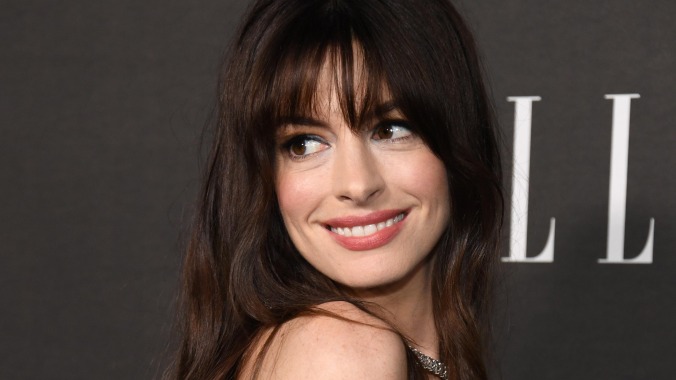Anne Hathaway would still be this excited for Ottessa Moshfegh's Eileen even if she wasn't in it
Anne Hathaway described the vibe making Eileen as “Carol meets Reservoir Dogs”

Ahead of its premiere at Sundance Film Festival, Anne Hathaway is calling the adaptation of Ottessa Moshfegh’s Eileen one of the best works of her decades-long career.
“It’s one of my favorite things I’ve ever been in,” Hathaway tells Vanity Fair. “Even if I wasn’t in it, it’d be one of my favorite things I’ve seen in ages.”
In the 1960s-set film, Hathaway plays the Rebecca (named after the Hitchcock character) to Thomasin McKenzie’s Eileen. The glamorous psychologist becomes an obsessive focal point for Eileen, a lonely, outcast young woman who works as a secretary at a boy’s juvenile facility. In the novel, Eileen refers to Rebecca as her “ticket to a new life,” viewing her as the salvation from her gloomy, miserable existence. Over the course of a frigid New England winter, the duo’s bond spirals into something much darker, with grotesque consequences.
“As you can imagine, over the course of the past however many decades, I’ve read a number of scripts,” Hathaway says. Describing the project as “Carol meets Reservoir Dogs,” the actor continues, “I had to sit with this one. I had to go back to it. I had to walk away from it. It kept revealing itself to me.”
Moshfegh penned the screenplay for Eileen with her husband, fellow writer Luke Goebel (who most recently wrote the screenplay for the Jennifer Lawrence drama Causeway). Director William Oldroyd, known for 2016's Lady Macbeth (which notably launched the career of Florence Pugh), boarded the project before any draft of the script was written. Cinematographer Ari Wegner (The Power Of The Dog) has joined Oldroyd once more for Eileen.
Once Hathaway boarded Eileen, she was tasked with “bringing main character energy to a supporting part—and having that translate.”
“I [remember] just throwing everything at it and it feeling very risky,” Hathaway says. “I did hold my breath until I finally saw the film and saw that Will [Oldroyd] understood what I was doing—because it was very big. There was a much safer route to go with her.”